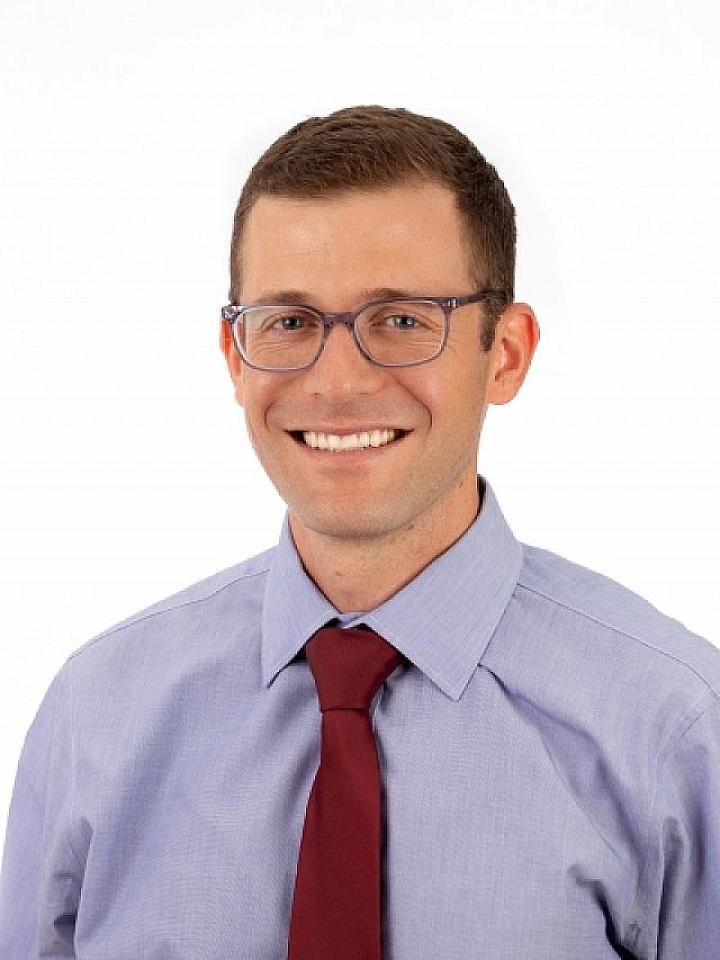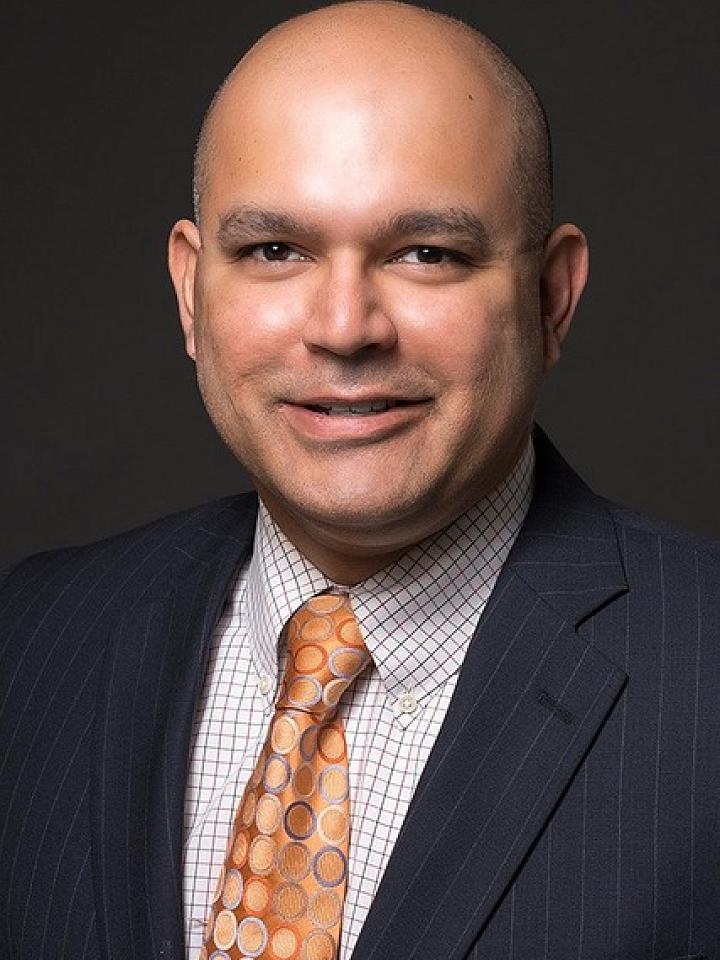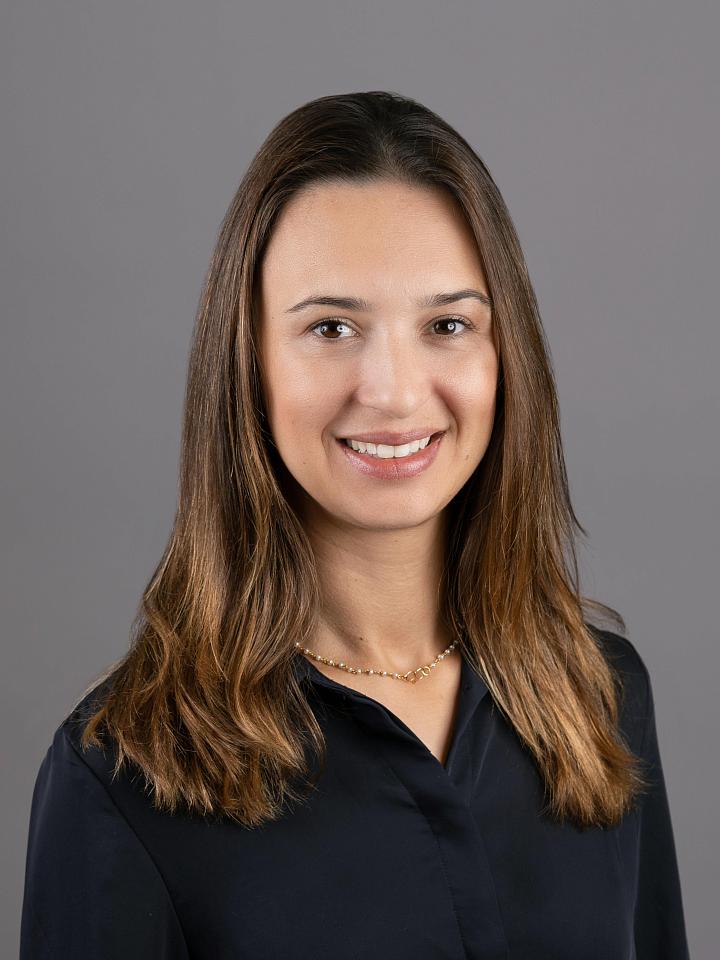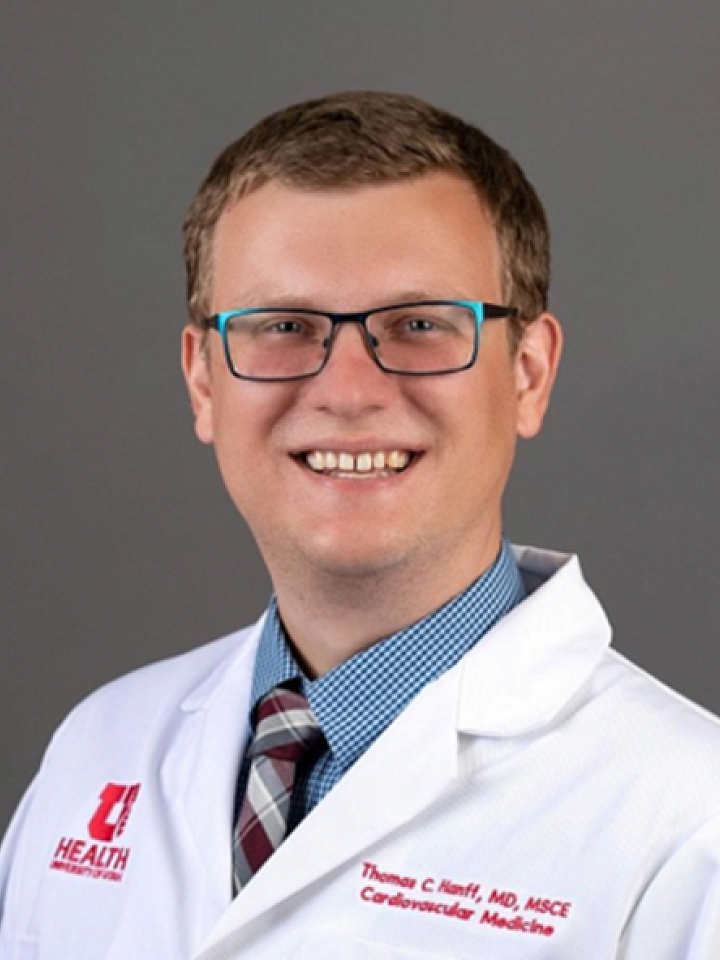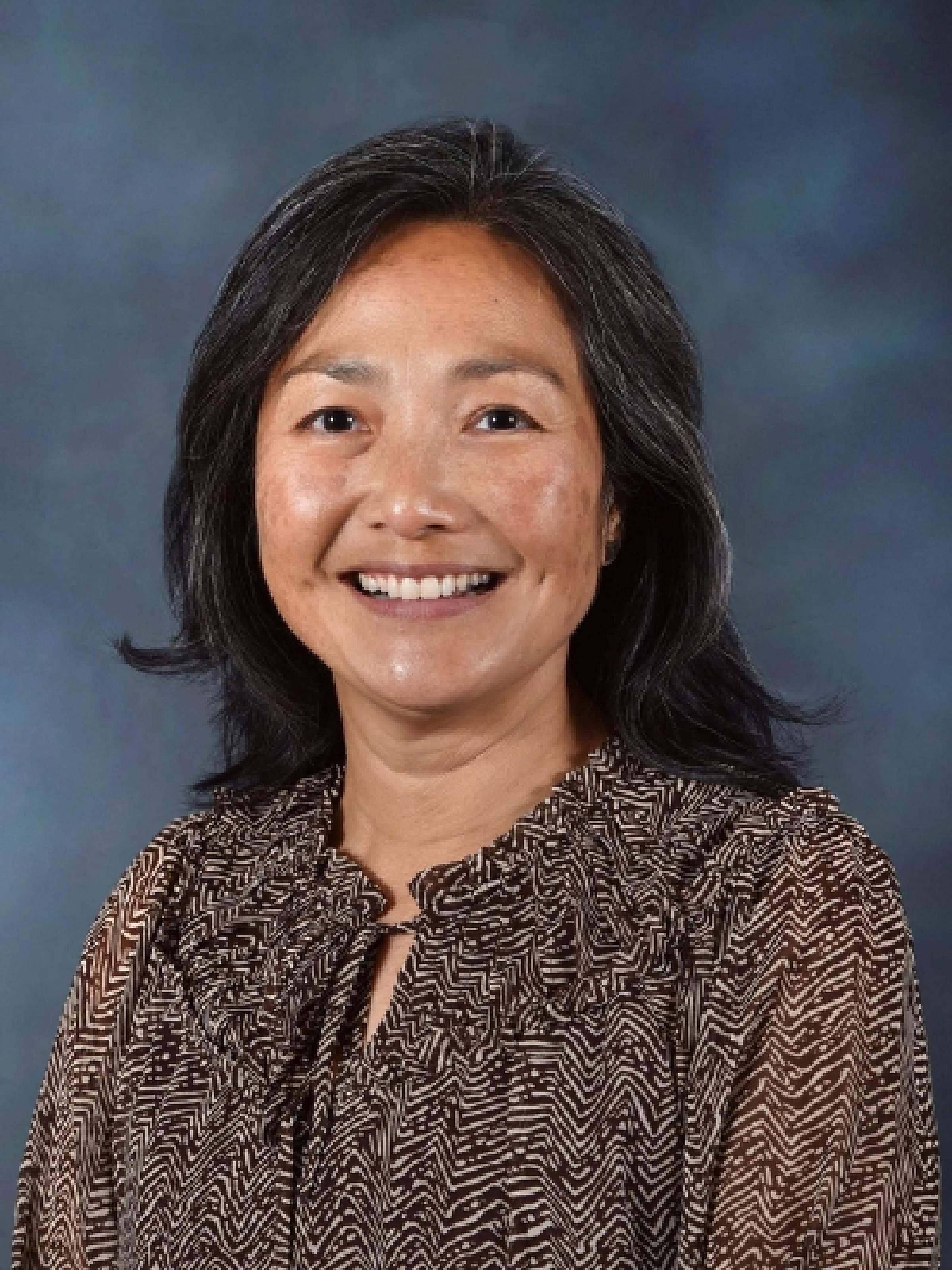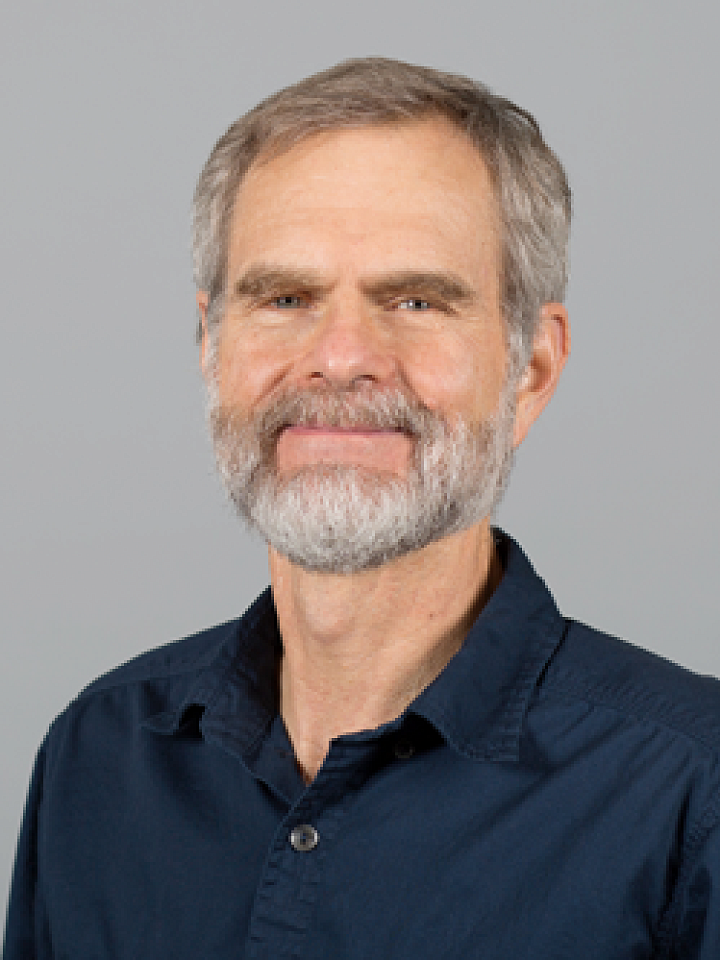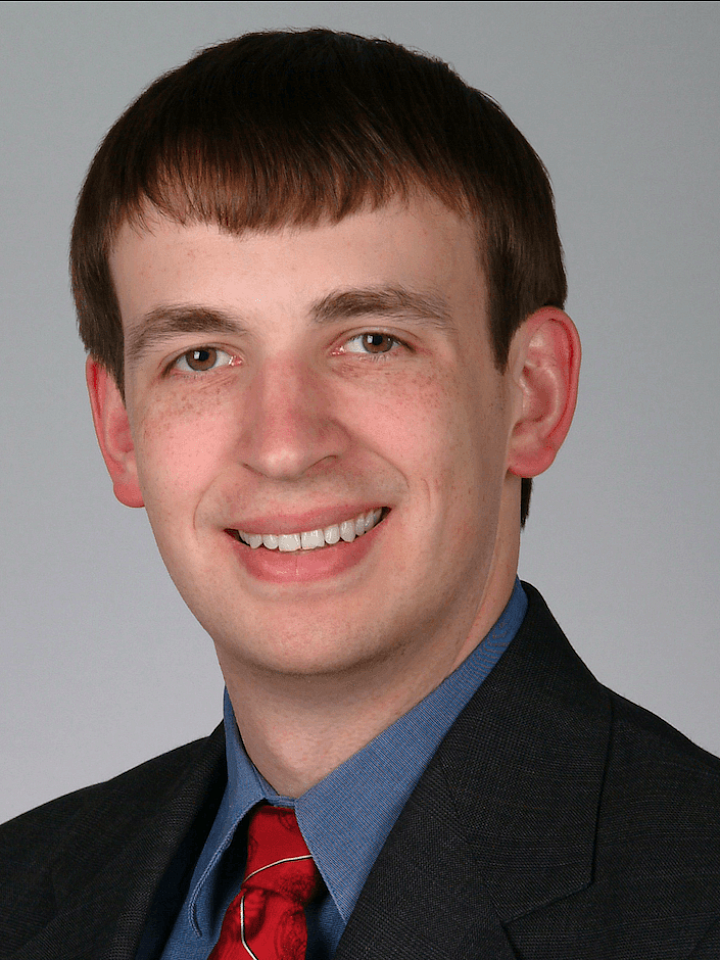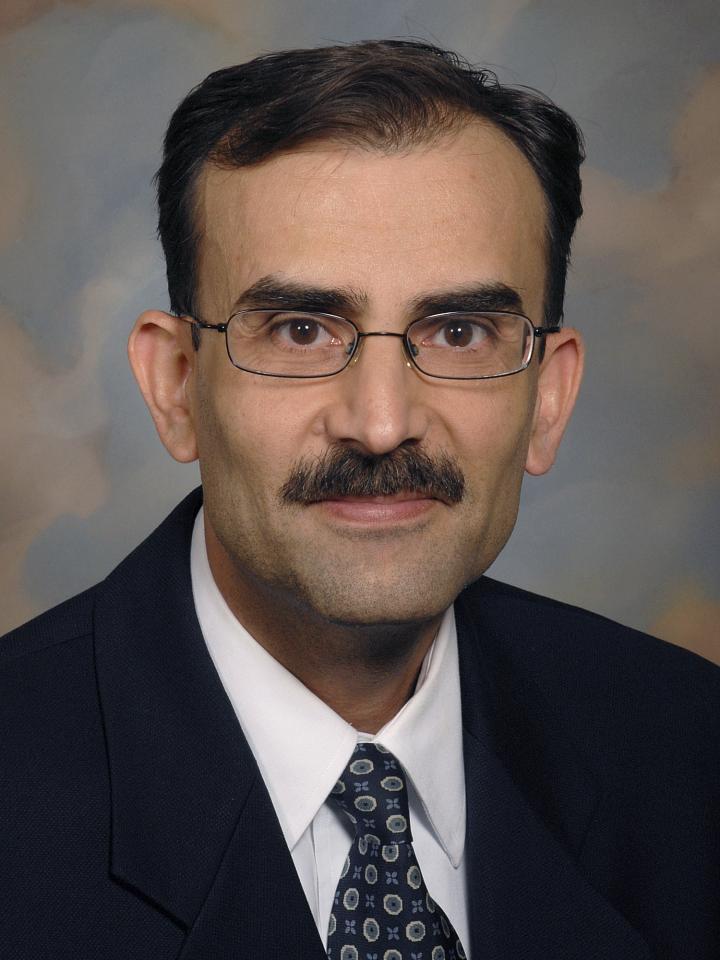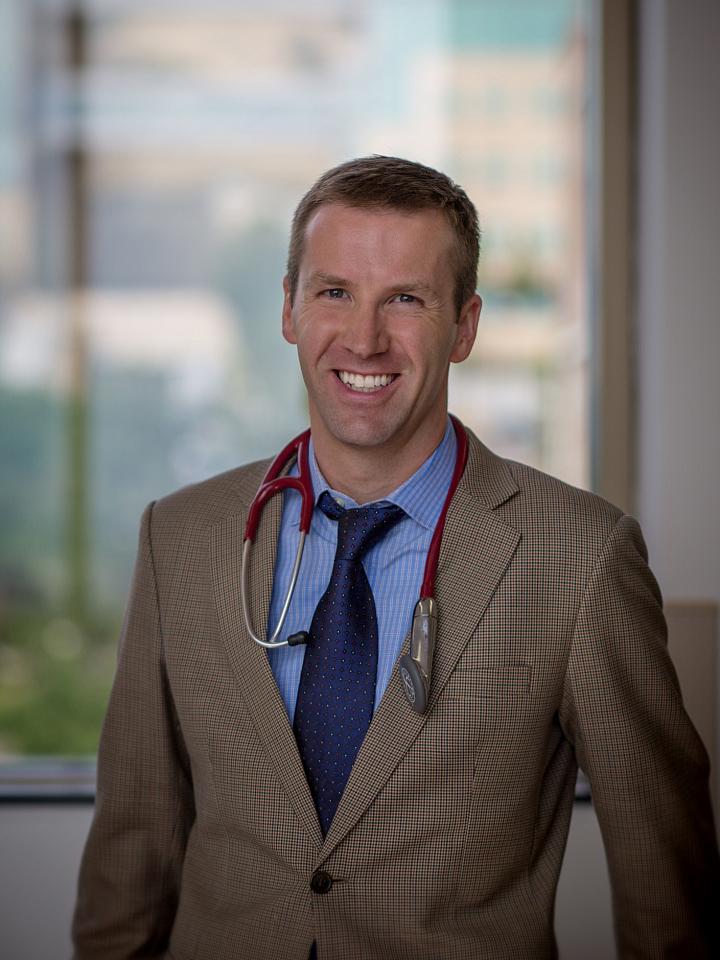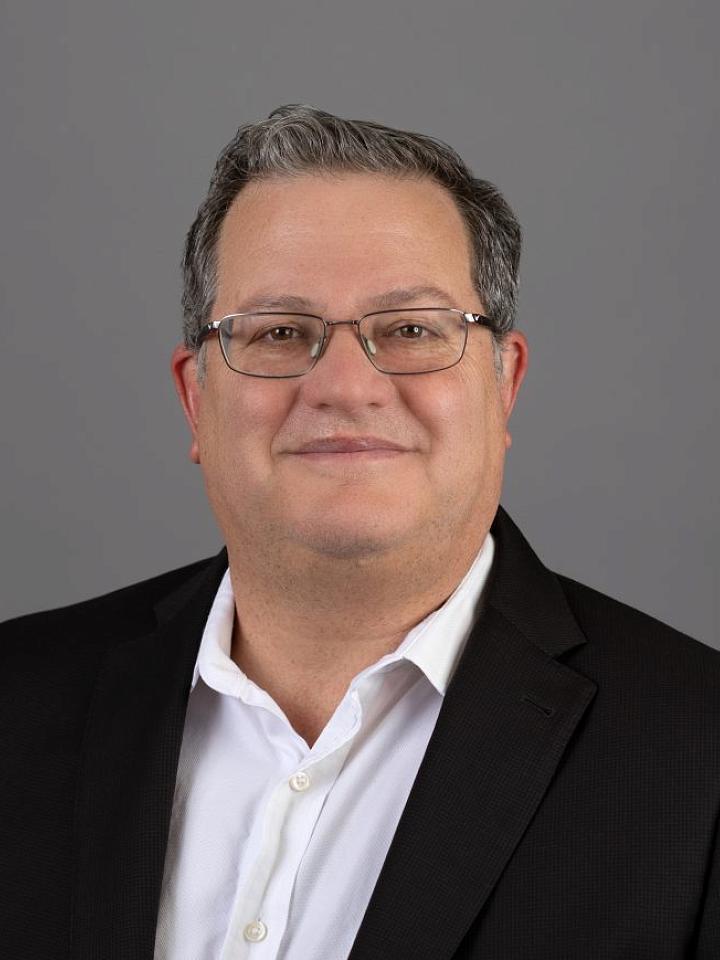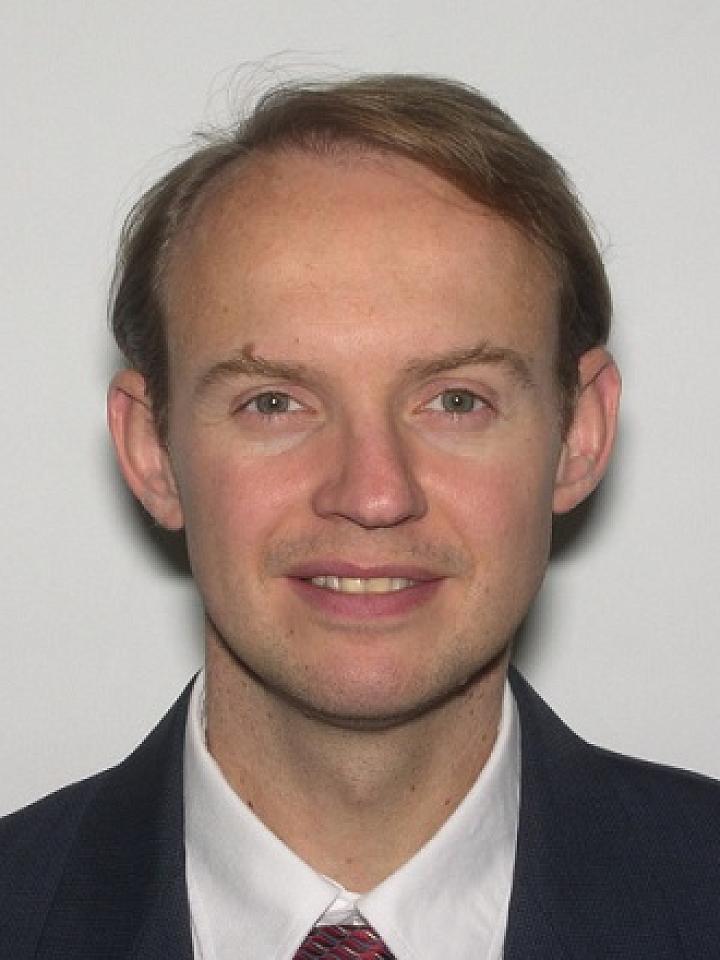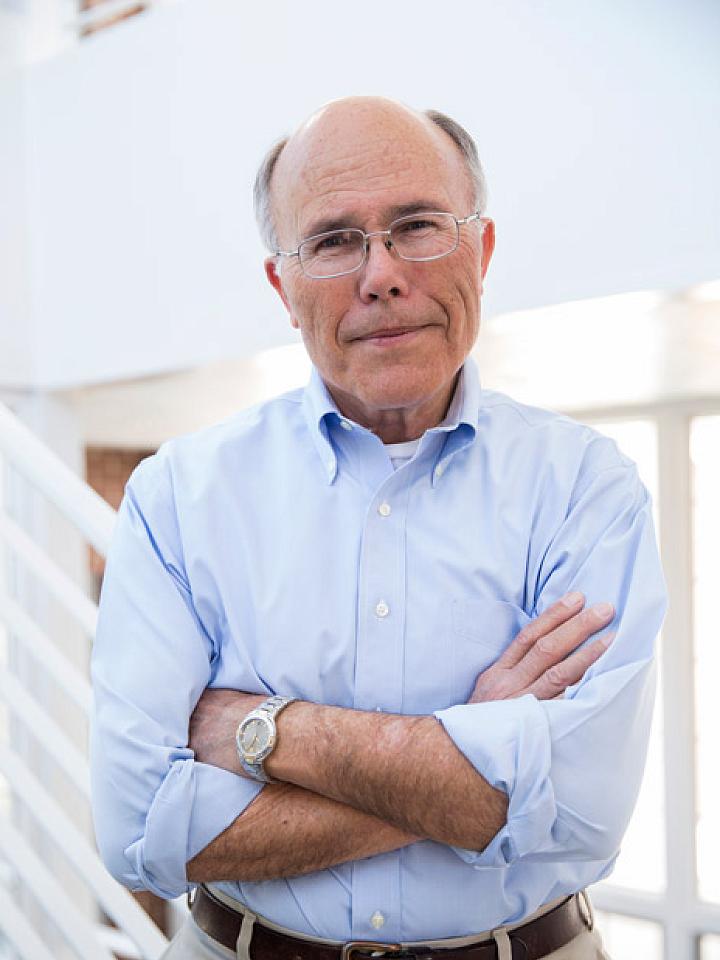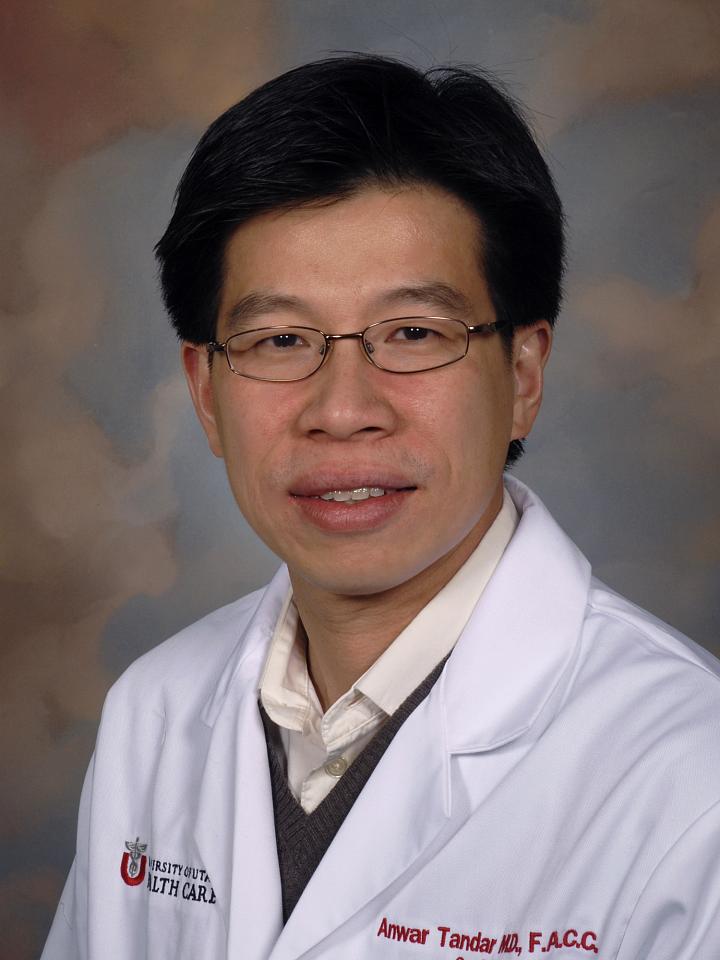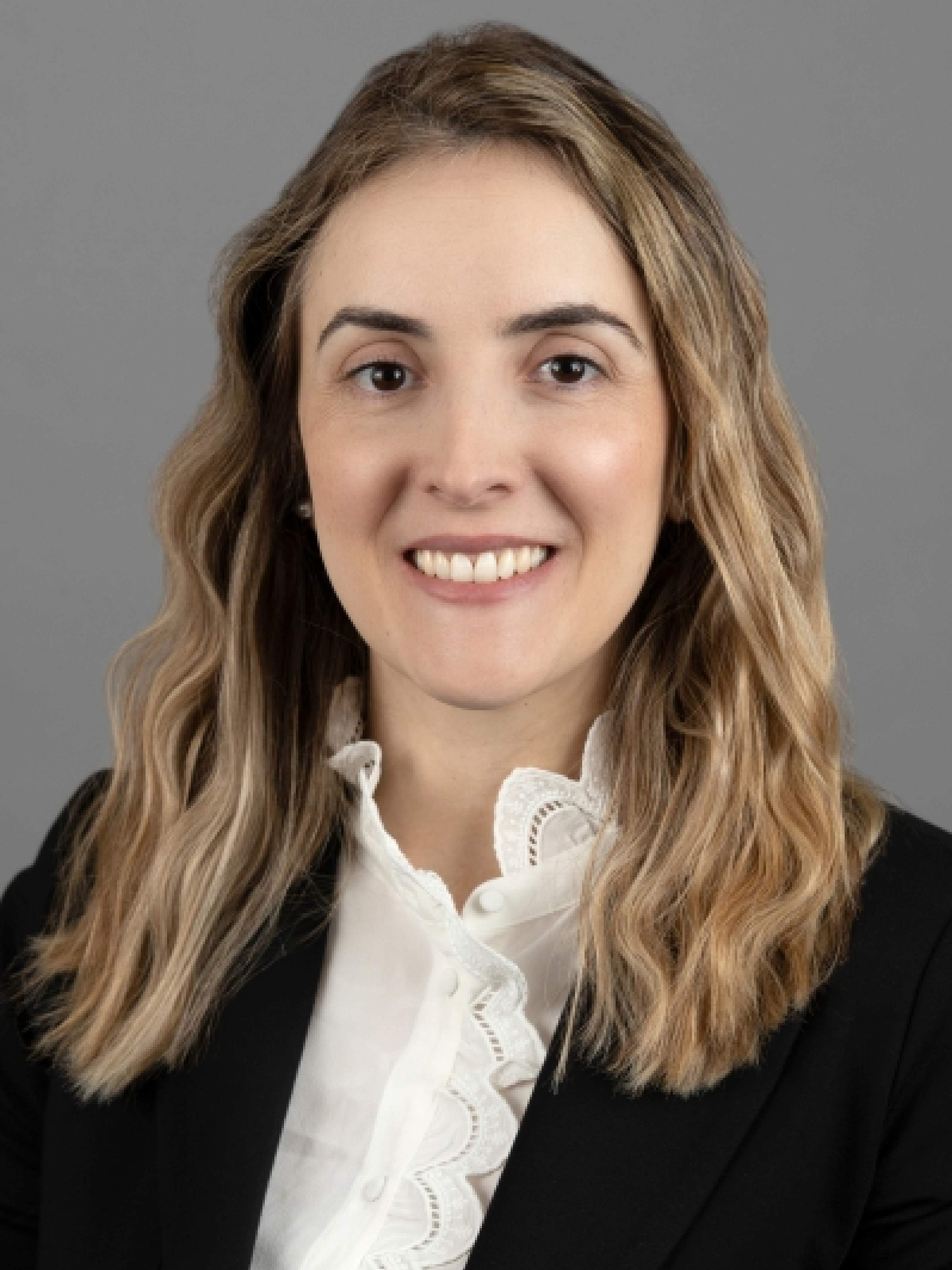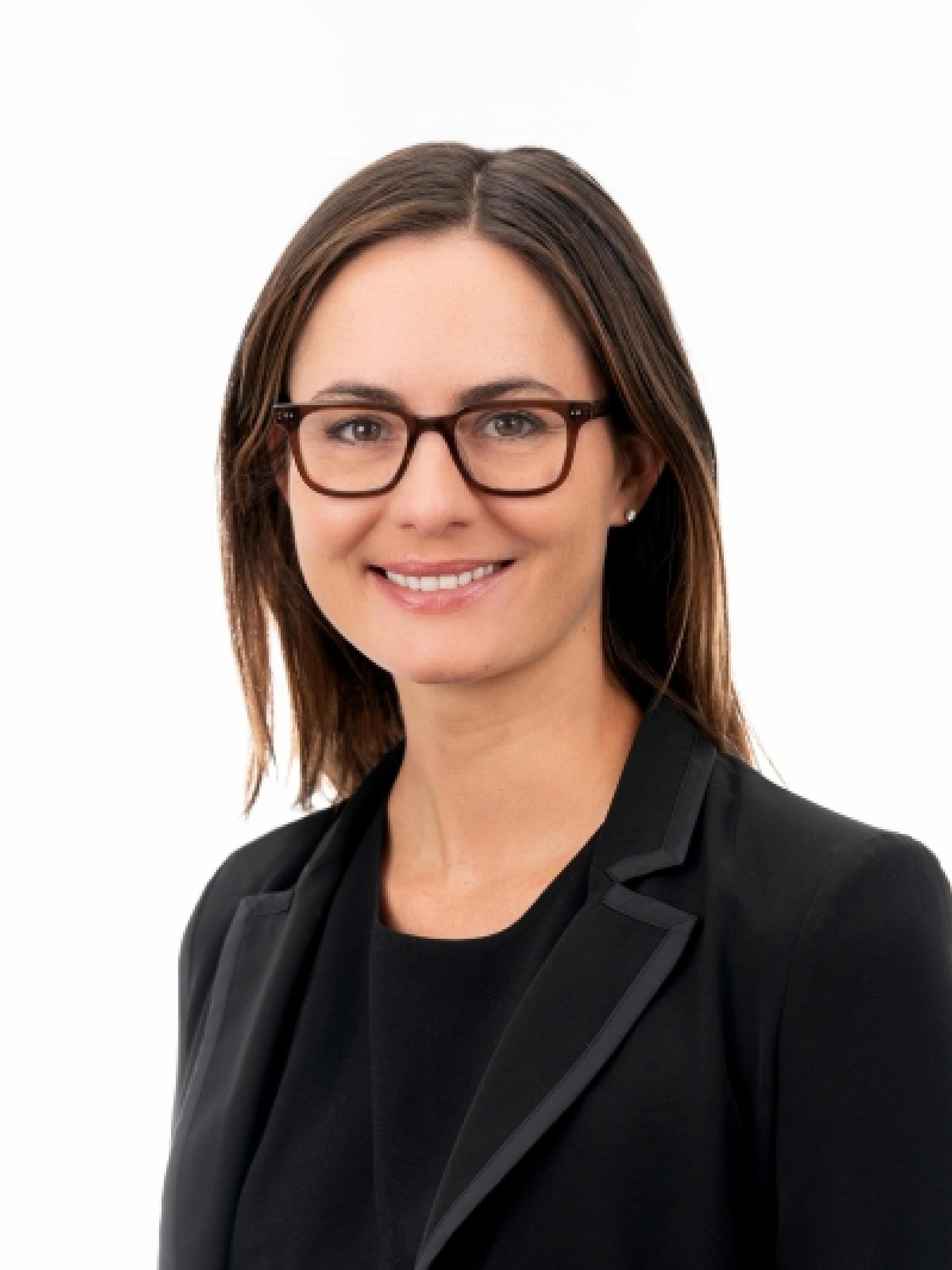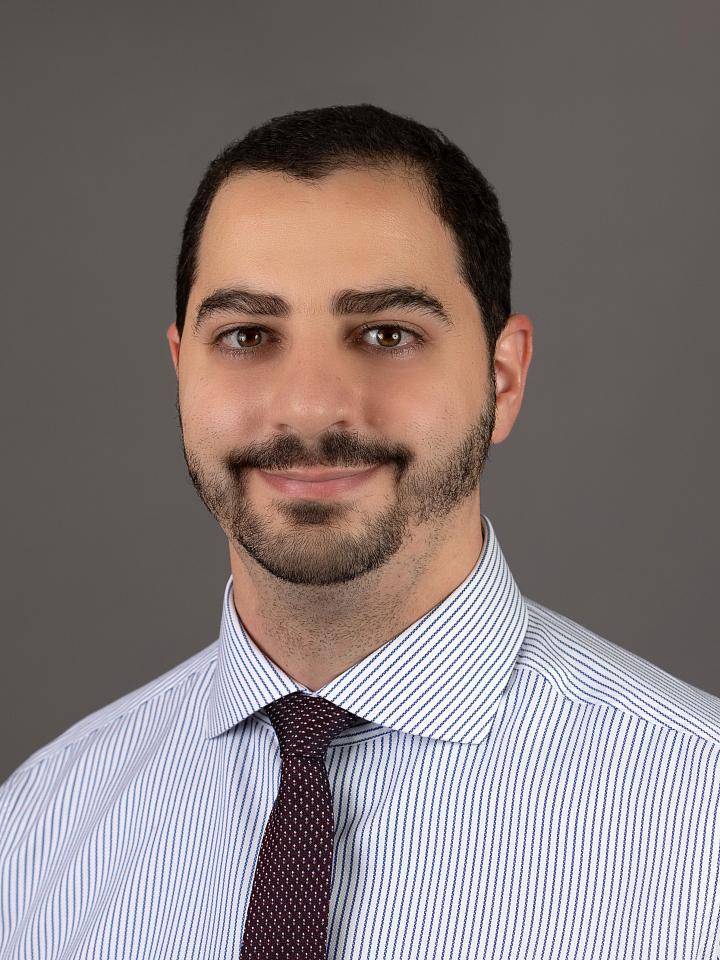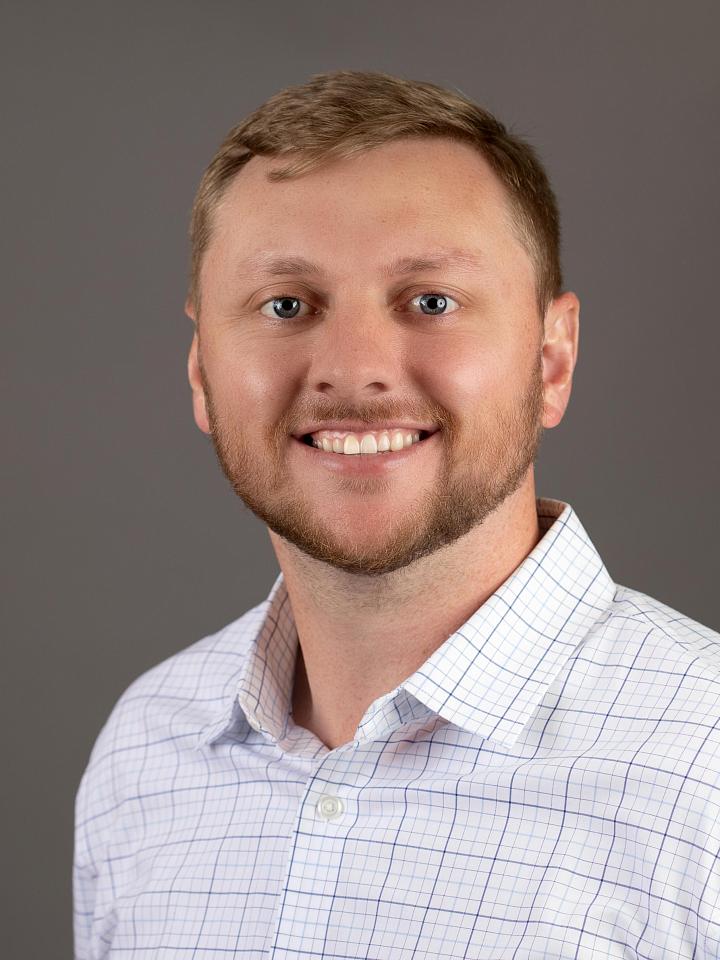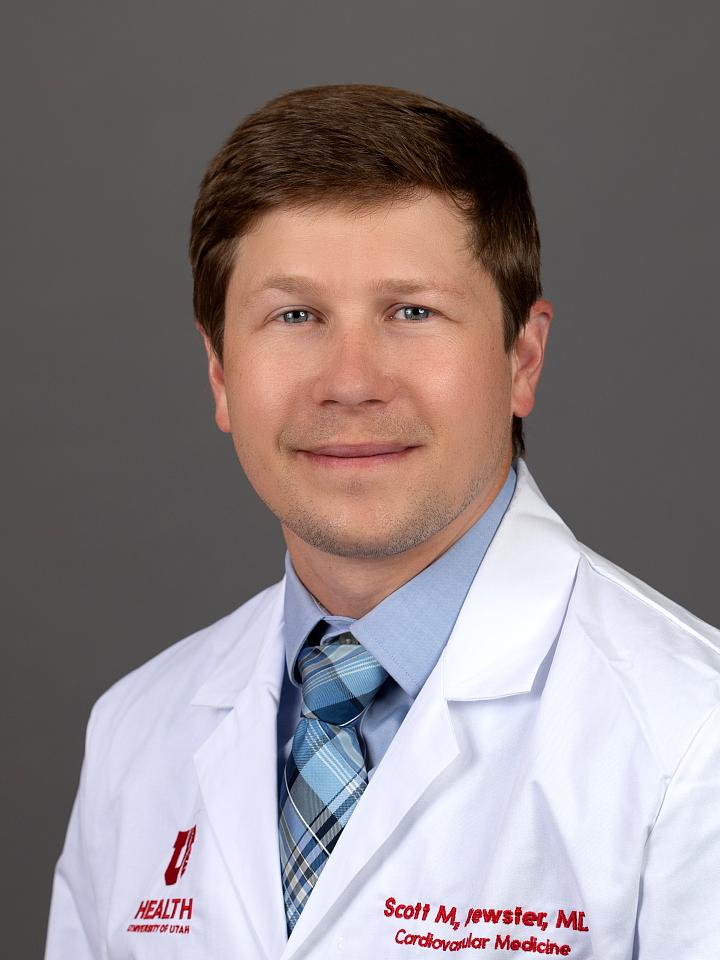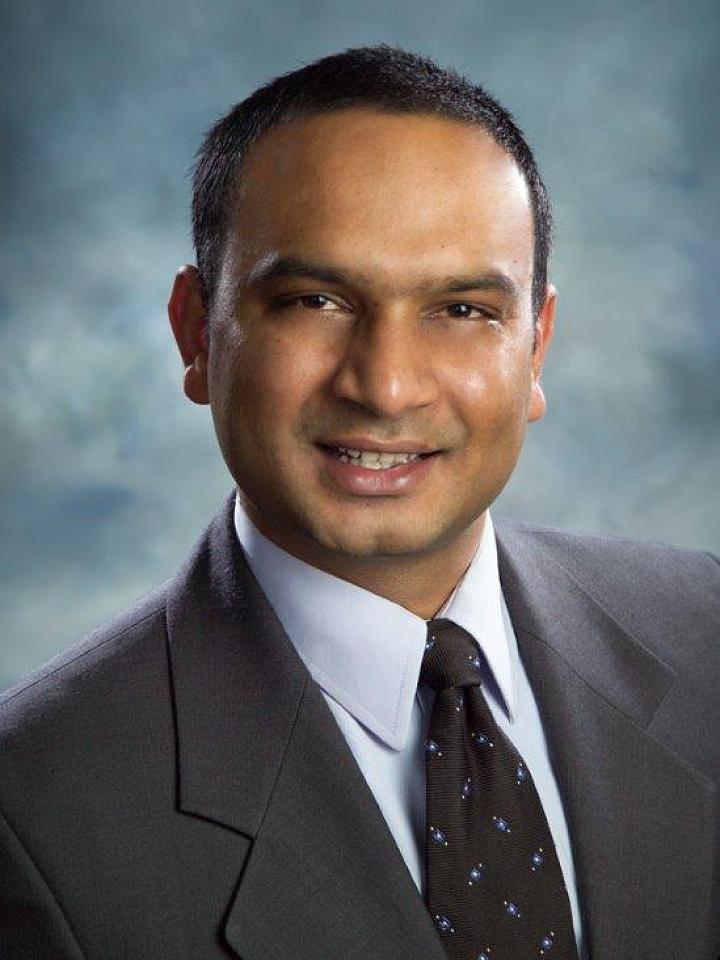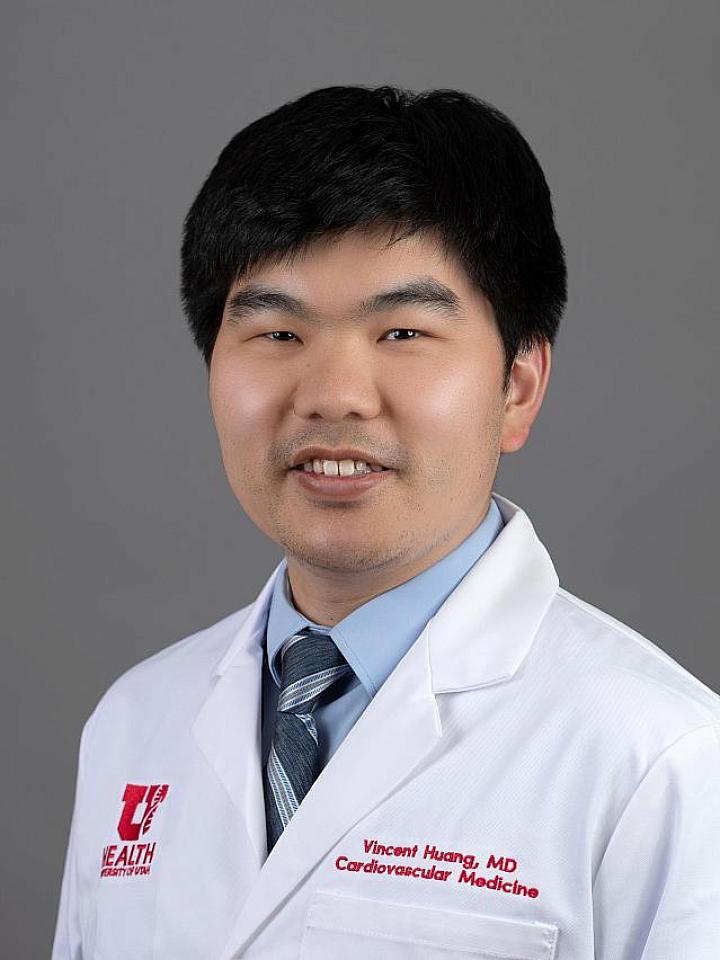
Projects
Faculty Projects
Spencer Carter, MD
Dr. Carter's research is focused on implementation science and high value care in addition to investigations involving amyloidosis. Current investigations include the creation and evaluation of a GDMT clinic for HF medication optimization, assessing and modulating use of inpatient thiazide like diuretics, understanding inpatient diuretic prescribing habits, and creation of a urine sodium based diuretic approach. As cardiology director of the clinical amyloidosis program, he is site PI or co-I in several large industry sponsored RCTs, and currently working with a post-doc fellow to explore investigator-initiated projects including PRO data in amyloidosis and orthopedic, TAVR and echo screening programs. In fellowship and early career he has worked with multiple residents, fellows, and allied health professionals to bring their projects to the finish line presenting at local and national conferences.
Lowell Chang, MD, FACC
Dr. Chang's personal research interests have been focused on cardiac magnetic resonance imaging in collaboration on projects with The Utah Center for Advanced Imaging Research (UCAIR). Additionally, he has been serving as the site principal investigator and co-investigator on several multicenter clinical studies being conducted at the VA Salt Lake City.
Dipayan Chaudhuri, MD, PhD
The Chaudhuri Laboratory’s research is investigate how cardiac metabolism is altered in heart failure, and use these discoveries to seek new therapeutic interventions. Heart disease remains the leading cause of death worldwide. Heart failure—the inability of the heart to pump sufficient blood with each heartbeat—is an increasingly prevalent cause of such disease, contributing to one in 9 deaths in the United States. We study how altering the transport of calcium ions into mitochondria, critical for the cardiac heartbeat and metabolism, can be used to treat heart failure. For these studies, we focus on both adult and pediatric forms of this disease, particularly those caused by mitochondrial dysfunction.
Stavros G. Drakos, MD, PhD, FACC
Dr. Drakos’s research interests are focused on cardiac recovery associated with unloading and mechanical support in the chronic heart failure (HF) setting and the acute setting (i.e. acute HF/cardiogenic shock). Dr. Drakos's team is utilizing clinical and biological information derived from studies in humans and small or large animal HF models to understand and manipulate cardiac recovery. Dr. Drakos's NIH-funded team is housed at the Nora Eccles Harrison Cardiovascular Research and Training Institute-CVRTI (Drakos Lab & Clinical Research Team website: http://cvrti.utah.edu/~drakos). Original work generated by Dr. Drakos's team both in the clinical arena and in his lab led to the establishment of the award-winning multidisciplinary Utah Cardiac Recovery Program-UCAR. To further advance the field of cardiac recovery Dr. Drakos is co-director of the Annual International Utah Cardiac Recovery Symposium (UCARS) - for more info see U-CARS Symposium. Along the same lines Dr. Drakos is a co-chair for the NIH/NHLBI Working Group on Myocardial Recovery - its executive summary and member list can be found HERE. (Simultaneous publication at the official journals of the American College Cardiology (ACC), Heart Failure Society of America (HFSA), American Society of Artificial Internal Organs and the American Association of Thoracic Surgery).
Jim C. Fang, MD, FHFSA
Dr. Fang’s investigations have spanned the spectrum of the heart failure discipline, including myocardial recovery, transplant atherosclerosis, and HFpEF. He has been active in clinical trials, translational investigation, and collaborative registry observations in heart failure. He has been part of the Executive/Steering Committees of EVALUATE-HF, GALACTIC-HF, and DELIVER. His collaborative research groups have included the Penn Heart Study, the NIH Heart Failure Network and the AHA HF Strategically Focused Research Network. He has participated in a number of consensus statements, guideline committees and working groups that have addressed important issues in heart disease and heart failure such as defining advanced heart failure, the pulmonary hypertension of left heart disease, fulminant myocarditis, critical care cardiology, and cardiorenal syndrome.
Roberta Florido, MD
Dr. Florido’s research is broadly focused on heart failure prevention and cardio-oncology. Dr. Florido has led several studies assessing the impact of lifestyle related factors such as physical activity and adiposity on reducing the risk of cardiovascular disease, in particular heart failure, both in the general population and in particular within high-risk subgroups. Additionally, she has examined the role of novel biomarkers of subclinical myocardial injury and fibrosis in the associations of physical activity and adiposity with incident heart failure. Within the field of cardio-oncology, she has studied the risk of CVD subtypes in cancer survivors and examined the distribution of biomarkers of subclinical myocardial injury in cancer survivors as indicators of long-term heart failure risk. Dr. Florido has an Adjunct position at the Johns Hopkins University and collaborates closely with investigators in cardiology and at their school of public health, leveraging existing datasets to better understand HF in the oncologic population. Dr. Florido is also involved in multi-center clinical trials in the field of cardio-oncology.
Sarah Franklin, PhD
The Franklin Laboratory’s research is focused on the nucleus, DNA is wrapped around histone proteins (i.e. nucleosomes). This combination of DNA, histones and other proteins is referred to as chromatin. Both the DNA and proteins in this complex are susceptible to modifications which can alter the chromatin structure and consequently influence gene transcription. Changes in gene transcription can influence cell fate and physiology and have been shown to be altered in diseases such as heart failure. Because more people die from heart disease than any other pathology, the Franklin lab is interested in identifying the epigenetic factors that regulate gene transcription in the heart during disease progression. To do this, the lab uses a combination of proteomics, mass spectrometry, biochemistry and molecular biology to elucidate the role of histone isoforms, post-translational modifications and other chromatin binding proteins on chromatin structure and gene accessibility. Additionally, the Franklin lab also determines how these factors contribute to the regulation of heart morphology and physiology.
Thomas C. Hanff, MD, MSCE
Dr. Hanff is a heart failure cardiologist interested in the pathophysiology and management of cardiogenic shock (CS). His research involves the application of innovative data science techniques to clinical, biological, and registry data to (i) uncover novel mechanistic concepts and treatment pathways in CS, (ii) to better understand the role, timing, and optimal application of temporary mechanical circulatory support in CS, and (iii) to understand how CS impacts outcomes from heart transplant and left ventricular assist devices. He seeks to clarify the ways that CS and CS outcomes are driven by systemic pathophysiologic changes, challenging the notion that CS is simply a heart problem that can be fixed with heart therapies alone. In particular, he is interested in why patients lose compensatory vasoconstriction in the later stages of CS and how this relates to mortality and cardiorenal outcomes. He has received grant funding through the ISHLT and the University of Utah Academic Excellence Program to interrogate the role of renin-angiotensin-aldosterone system dysregulation in CS outcomes, and he helps lead several prospective cardiogenic shock registries. Methodologically, he is particularly interested in the application of causal inference, clustering techniques, and phenomapping in CS and in study designs that minimize bias and confounding in observational data.
Mark Ibrahim, MD
- Coronary CT Angiography, FFR-CT and stress CT myocardial perfusion for assessment of coronary artery disease in patients with severe aortic stenosis undergoing transcatheter aortic valve implantation. Prospective study aims to evaluate the utility of using an institutionally developed comprehensive non-invasive anatomical and functional evaluation of the coronary arteries in patients with severe aortic stenosis prior to undergoing TAVI.
- Cardiac magnetic resonance tissue tracking strain patterns in left ventricular non-compaction cardiomyopathy. Retrospective study aims to describe myocardial strain patterns in left ventricular non-compaction cardiomyopathy using CMR tissue tracking and correlate with other clinical variables and patient outcome.
- Correlation between cardiac magnetic resonance tissue tracking strain and delayed gadolinium enhancement in patients with hypertrophic cardiomyopathy. Retrospective study aims to analyze the correlation between MRI derived myocardial strain value and left ventricular scar detected by delayed gadolinium enhancement.
Lillian B. Khor, MBBCH, MSc
Lillian Khor is a noninvasive general cardiologist with a Masters in Clinical Investigation from the University of Utah who is passionate about primary and secondary prevention of cardiovascular events. Her clinical research interest is in the use of point of care ultrasound (POCUS) in the assessment of central venous pressure elevation and translating it into the diagnosis and management of cardiometabolic and cardiorenal pathology. Through her medical directorship experience in the coronary care and telemetry units of the Salt Lake City Veteran Affairs Medical Center and Cardiac Rehabilitation at the University of Utah Health, she is has collaborated in multi-disciplinary quality improvement research on the transitions of care. She is also researching the education of cardiopulmonary POCUS to medical students and professionals at different levels of training and aligning this education with the quality improvement and assurance mission of value-driven clinical care
Shannon J. Odelberg, PhD
The Odelberg laboratory focuses on the role of the small GTPase ARF6 in inflammatory disease and cancer. ARF6 has been shown to play a role in both chronic and acute inflammatory diseases and conditions, including arthritis and sepsis, and in the establishment and metastasis of certain cancers, such as cutaneous and uveal melanoma. The activation of ARF6 helps drive these diverse conditions by promoting the trafficking of key signaling proteins to appropriate intracellular locations where signaling is enhanced. Blocking the function of ARF6 by gene knockout, RNA interference, or pharmacologic inhibition reduces trafficking and signaling of these key proteins and mitigates disease in animal models, thus making ARF6 a promising therapeutic target for several cancers and inflammatory conditions.
The laboratory has also focused on the cellular and molecular basis of regeneration in a type of salamander known as the newt. A newt has the remarkable ability to regenerate many organs and body structures, including its limbs, tail, heart ventricle, spinal cord, retinas, lenses, upper and lower jaws, and intestines. Studies from the laboratory have shown that a transitional extracellular matrix is formed during the early stages of regeneration and that this matrix instructs cell behaviors crucial to the regenerative response, such as cellular dedifferentiation, proliferation, and migration.
Joseph Palatinus, MD, PhD
The Palatinus Laboratory’s Research: Sudden cardiac death remains the most common cause of natural death in the United States, affecting 300,000-400,000 people per year. A common finding in the hearts of victims of sudden cardiac death is a loss of the normal distribution of ion channels and gap junctions within the heart muscle. A major mechanism behind aberrant localization of these critical ion channels in the diseased heart is a loss of trafficking to their intended location. There are no current therapies that target this protein trafficking defect to treat or prevent arrhythmias or sudden cardiac death. The Palatinus lab is translationally focused on preventing sudden cardiac death by rescuing this protein trafficking defect in the heart. Our lab utilizes a variety of techniques, state-of-the-art high resolution confocal microscopy, molecular biology and live cell imaging as well as transgenic murine models to investigate this trafficking defect. Currently our focus is on targeting this trafficking defect to rescue the cardiomyopathy and sudden death observed in a mouse model of arrhythmogenic cardiomyopathy with the eventual goal to bring these therapeutic strategies to the bedside for preventing sudden cardiac death and treating cardiac arrythmias.
Ravi Ranjan, MD, PhD
The Ranjan Laboratory’s research is focused on cardiac recovery associated with unloading and mechanical circulatory support (MCS) in the chronic heart failure (HF) setting and the acute setting (i.e. acute HF/cardiogenic shock). We have published original work generated both in the clinical arena and in our laboratory which led to the founding and establishment of the award-winning multidisciplinary Utah Cardiac Recovery Program (UCAR). The research initiatives of UCAR are developed in close connection and alignment to the development of its clinical aspects. This parallel development facilitates a full circle bidirectional synergy which is mutually beneficial to the research and clinical potentials.
John J. Ryan, MD, MB, BCH, BAO
Dr. John Ryan has published > 150 papers in the field of pulmonary hypertension (PH) and pulmonary vascular disease. He is involved in large numbers of clinical trials in pulmonary arterial hypertension (PAH) and also in trials studying pulmonary hypertension from left-sided heart disease. Dr. Ryan is also involved in PH registries, including the Pulmonary Hypertension Association Registry, a multicenter North American based registry of PH centers, X-POSE, a national methamphetamine-associated PAH registry, and also runs the University of Utah Pulmonary Hypertension Registry (UUPHR), all of which they have published extensively from and advanced the understanding of pulmonary vascular disease. He is an author on treatment guidelines for PAH and PH, and has given talks worldwide on PH.
Rashmee U Shah, MD, MS
Dr. Rashmee Shah is an adjunct cardiologist, data scientist, feminist, and mother in the Division of Cardiovascular Medicine. She is interested in the interface between technology, advanced computational methods, and clinical implementation. Her research group, DRIVE (Data Driven Research, Innovation, and Education), focuses on creating computable phenotypes from the electronic medical record and other sources. Computable phenotypes use data, which is meaningless on its own, to create information, the clinical framework used in healthcare. Specifically, Dr. Shah has an interest in natural language processing to leverage rich descriptions founding in the clinical narrative. Computable phenotypes can be used in large scale studies, or “big data” analyses. Her prior experience includes clinical applications for machine learning and deep learning in cardiac surgery prediction, and phenotype development among atrial fibrillation patients.
Robin M. Shaw, MD, PhD
The Shaw Laboratory is focused on basic myocardial biology. Their work defined the paradigm of Targeted Delivery which describes how the cytoskeleton delivers membrane proteins directly to their functional membrane subdomain and why there is less delivery in failing hearts. In the process, the Lab discovered and named two new proteins, GJA1-20k and cBIN1. Both proteins have fundamental roles in organizing the internal architecture of heart muscle cells and have important translational implications in the treatment of arrhythmia and ischemic injury (GJA1-20k) and chronic heart failure (cBIN1).
Richard S. Shelton, MD
Dr. Richard Shelton is a clinical cardiac electrophysiologist and cardiologist who specializes in the management of cardiac arrhythmias and who practices primarily at the Salt Lake City VA Medical Center. His research interests include biologic and computational control systems which contribute to healthy cardiovascular function. In addition to a autonomic dysfunction clinic that Dr. Shelton runs for veterans at the VA, he also has a similar clinic at the University of Utah Hospital which researches the effects of autonomic nervous system abnormalities on cardiovascular function. A large majority of the patients in these clinics have orthostatic intolerance and postural orthostatic tachycardia syndrome (POTS). Dr. Shelton is also researching the effects of barostimulation of carotid bulb on cardiovascular disease, specifically chronic systolic heart failure or heart failure with reduced ejection fraction. So far, several of his patients have shown tremendous improvement of their symptoms consistent with the BeAT-HF Trial for systolic heart failure. In addition, Dr. Shelton is investigating the efficacy of transcutaneous barostimulator lead placement as opposed to lead placement through an open incision.
Kenneth W. Spitzer, PhD
Dr. Spitzer's research focuses on cardiac cellular physiology to include intracellular pH regulation, calcium handling and electrophysiology.
Anwar Tandar, MD
Anwar Tandar, MD, is currently involved in several clinical trials focusing on improving treatments for interventional cardiology patients. He also collaborates with many other cardiologists or cardiothoracic surgeons and also with neurology and pulmonary medicine in m any clinical trials. His involvements/clinical trials include the following:
- AMULET Clinical trial: Left atrial Appendage Closure device (AMULET)- Abbot Medical. Site PI. Collaborate with Dr. Ravi Ranjan as co PI.
- Gore-PFO Registry. Site PI.
- Carillon Trial: Evaluation of coronary sinus device for the treatment of functional mitral regurgitation. Site PI, collaborate with Dr. Craig Selzman (CT surgery), Dr. Josef Stehlik (Hear Failure) and Dr. Frederick Welt (Interventional Cardiology).
- Reduce-LAP-: iASD device for HFpEF-Corvia. Sub-PI. He collaborates with Dr. Ryan as the PI.
- Portico Transcatheter Heart Valve Trial (Portico US study) - St. Jude Medical. Site PI.
- ASSURED ASD Trial-New ASD Occluder device for ASD patients - Gore Medical. Co-PI—Collaboration with Pediatric Interventional Cardiology - Dr. Robert Gray.
- Transcaval Access for Transcatheter Aortic Valve Replacement in Patients with no Good Options for Aortic Access. National Institute of Health-NHLBI. Site PI, collaborate with Dr. Robert Lederman, MD (PI).
- Re-Dual PCI: A prospective Randomised (Closed)
- Exemption Umbrella - Clinical Analyses in Cardiovascular Medicine. Co-PI. PI: James Fang.
- Carotid Artery Assessment and Revascularization for Patients with Aortic Stenosis undergoing Transcatheter Aortic Valve Replacement Study (CAROTID)
Eleni Tseliou MD, PhD
Dr. Tseliou is an Assistant Professor on the tenure track in the Division of Cardiology at the University of Utah. She serves as the principal investigator of a basic and translational science laboratory, where her research focuses on the role of fatty acid metabolism in cardiovascular diseases. Her current research, funded by the National Institutes of Health, delves into the impact of sphingolipids on myocardial recovery. By utilizing tissue and single-cell omics, Dr. Tseliou's team seeks to uncover the molecular determinants of cardiomyocyte metabolism and to explore how sphingolipids activate and mediate key effector functions. Her laboratory employs mouse models and engineered heart tissue systems to identify targetable mechanisms that contribute to various forms of adult cardiomyopathy, with the ultimate goal of developing precision therapeutics. In addition to her research, Dr. Tseliou is a board-certified cardiologist with expertise in advanced heart failure and cardiac transplantation. Her clinical work complements her research, bridging the gap between laboratory findings and patient care.
Eric C. Tuday, MD, PhD
Hypertension presents a major worldwide public health concern due to its high prevalence and the fact that it drives the progression of cardiovascular disease (CVD). While aggressive anti-hypertensive therapy for essential hypertension has significantly limited morbidity and mortality, isolated systolic (arterial) hypertension remains a major cardiovascular risk as we age. Age-associated increases in large artery (aortic) stiffness (LAS) is now recognized as playing a key role in the pathophysiology of isolated arterial hypertension. Increased LAS disproportionately increases central arterial pressure, creates systolic hypertension, and increases pulse pressure, a pathophysiology that is quite distinct from that of essential hypertension. Furthermore, increased LAS has been associated with the development or progression of congestive heart failure, coronary artery disease, chronic kidney disease and dementia. Interventions to date have been limited in their success in either treating or preventing age-associated increases in LAS, thus emphasizing the need for investigations into new strategies in addressing pathologic LAS.
I am a physician-scientist with a focus on vascular biology and mechanics. I am part of the Translational Vascular Physiology Laboratory located on the Salt Lake City VA Hospital Campus and I am affiliated with the Geriatric Research, Education and Clinical Center. Our laboratory is founded in vascular biology and is currently focused on investigating various aspects vascular stiffness and aging including projects regarding novel molecular players (non-coding RNAs), cell senescence, and dietary/exercise interventions. We are a multi-disciplinary team and work towards our common goal of understanding vascular biology.
Ethan Tumarkin, MD
The field of medical device development integrates clinically relevant questions with the know-how and expertise of bioengineering and material science. Dr. Tumarkin’s research interest lies at the intersection of cardiac imaging, complex hemodynamics, and medical device development. Most recently his focus has been on the miniaturization of transesopheal ultrasound devices to i) improve both hemodynamic and cardiac assessment in critically ill patients, and ii) reduce the use of sedation in transesopheal echo procedures for improved data analysis, and patient outcomes. His research brings together expertise from various specialties including cardiology, cardiac surgery, anesthesia, and critical care.
Libo Wang, MD
I am interested in understanding and incorporating appropriate use of technological advances at the bedside. Clinical and research interests includes point-of-care ultrasonography (POCUS) and its specific applications within cardiology and heart failure management, as well as mobile-device use amongst cardiology patients. Current investigations include assessment of pre-existing physical exam / ultrasonography in volume status with comparison to and validation of a new method in central venous pressure assessment by bedside ultrasound. I am also exploring real world patient use of wearable/mobile devices in atrial fibrillation detection/management, and characterizing this cohorts' presentation to cardiology clinics.
Tanya Wilcox, MD
Tanya Wilcox, MD is a cardiologist focusing on metabolic risk factors in cardiovascular disease. She completed her medical education at the University of California, Irvine following her undergraduate degree in evolutionary biology at Princeton. She continued her medical training with a residency and chief residency in internal medicine followed by a fellowship in cardiovascular diseases at New York University. Dr. Wilcox is board certified in internal medicine, cardiovascular diseases and echocardiography. She is also a board certified lipid specialist.
She conducts research using large datasets and outcomes data, aiming to uncover insights for prevention and treatment. Dr. Wilcox is involved in clinical trials of novel lipid-lowering agents. She values collaboration and is dedicated to mentoring the next generation of cardiovascular specialists. "
Fellow Projects
Emad Albayouk, MD
My research interests lie at the fascinating intersection of medical imaging and cardiology, specifically focused on defining the imaging characteristics of different cardiomyopathies. Through advanced imaging techniques like cardiac MRI, I aim to uncover distinctive patterns and features of patients affected by various cardiomyopathies, including but not limited to hypertrophic cardiomyopathy (HCM) and amyloidosis. By delving into the nuanced features of these diseases, my ultimate goal is to enhance early detection, accurate diagnosis, and personalized treatment strategies, thereby improving patient outcomes and contributing to the advancement of cardiovascular medicine.
McHale Anderson, MD
Since starting fellowship I have spent the majority of my research time building REDCap databases for cardiogenic shock. We now have completed the data entry for our Renin-Angiotensin- Aldosterone biomarker database, contributed data to the AHA for their cardiogenic shock working group, and started enrolling patients into our most recent multi-center registry - VANQUISH. Now that the foundation has been set, we are ready to start asking questions, submitting abstracts, and writing manuscripts. I recently presented an abstract at ISHLT assessing hemodynamic shock criteria and waitlist mortality and am currently working on a manuscript.
Scott Brewster, MD
I have a broad interest in many aspects of cardiology, having participated in studies on tobacco cessation, PFO closure, qualitative controls for goal directed medical therapy, cardiac and emergency room interactions and cardiac catheter patient selection criteria.
Nageshwara Gullapalli, MD
My research mainly centers around questions which arise in clinical practice. Topics of interest include epidemiology, racial/ethnic disparities, South Asian health, Heart failure, TAVR, A.Fib., & medical education. For my research I use the public databases (NIS, NRD, etc.) and available hospital datasets. I also do metanalysis on topics listed above. Many times, the answers to these questions lead to further questions which continue to propagate the research. I have fortunately been able to present many of the findings in conferences and publish them. In my latest project I am working with Dr. Kevin Shah on a prospective cardiovascular risk study of South Asians
Vincent Huang, MD
Vincent Huang, MD, is a general cardiology fellow in the University of Utah physician scientist training program who is interested in translational research in the field of heart failure as well as the intersection of heart failure and advanced cardiac imaging modalities. As a member of the Drakos lab, he has had the opportunity to investigate the molecular mechanisms underpinning LVAD mediated myocardial recovery as well as coronary allograft vasculopathy. One current project focuses on myocardial recovery in advanced heart failure patients undergoing LVAD implantation by integrating clinical and transcriptomic predictors. Using RNA sequencing and RT-qPCR on left ventricular apical tissue from 208 patients, the team identified predictors of post-LVAD recovery based on LVEF and LVEDD thresholds. A bioinformatic approach incorporating 59 clinical variables and 22,373 mRNA transcripts produced a gradient-boosted model with 80 features, achieving an AUC of 0.731. Machine learning analysis identified key genes associated with myocardial recovery, with immunofluorescence confirming their expression in cardiomyocytes and fibroblasts. Western blot analysis showed differential expression of some of these genes in responders versus non-responders. Current efforts involve knockdown studies to investigate the function of these identified genes. A second project investigates coronary allograft vasculopathy (CAV) in orthotopic heart transplant patients by analyzing gene expression changes in coronary arteries from transplanted hearts that develop CAV compared to donor hearts. Their team is hopeful to gain a better fundamental understanding of the molecular mechanisms driving these pathologies that will enable treatment of these pathologies more effectively.
Andrea Keithler, DO
Dr. Keithler's previous research interests have focused on studying the clinical outcomes of atrial fibrillation and supraventricular tachycardia management in athletic, tactical, and military populations with ultimate goals to improve arrhythmia care and treatment for these special populations. As an electrophysiology fellow she has become interested in better understanding and optimizing the care of patients with ventricular arrhythmias with her research mentor, Klitos Konstantinidis, MD.
